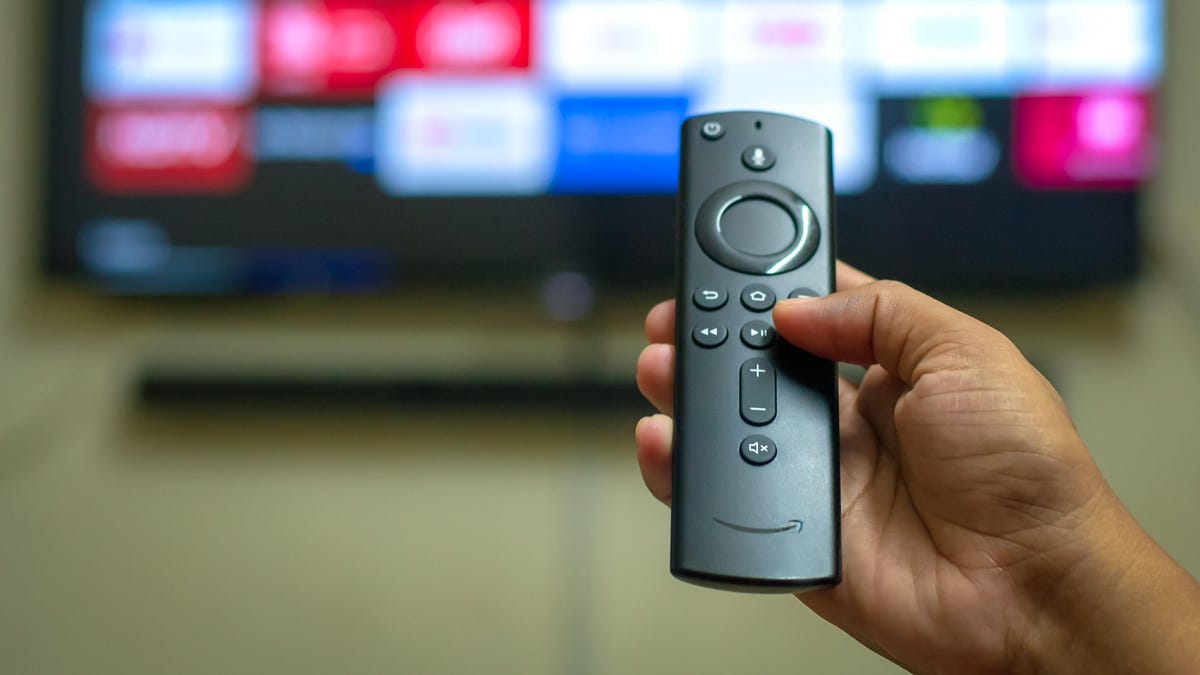
Last night, I flipped on Prime Video to watch a movie and, like millions of other streamers across the world, was promptly greeted with a commercial.
Truly, this sucks.
For all intents and purposes, Prime Video is now indistinguishable from the host of free video streaming apps that populate the Roku realm—unless, of course, you want to shell out an extra $3 a month for the same exact service you just had. If you’re unwilling to pay the extra money, you’re dooming yourself to a viewing experience that isn’t wholly dissimilar from the one you get while watching Tubi. If you are willing to pay a little extra, where does it end?
Advertisement
I first encountered Tubi, a free streaming app with ads, a couple years ago and, for the most part, have had a pretty good experience with it. There’s a good assortment of movies and TV shows on it and, while it doesn’t have a ton of original programming or particularly high resolution (it craps out at 720p), it provides a lot of basic entertainment value and provides it for free. So, in that sense, being considered a Tubi doppelganger shouldn’t be too bad, right?
Advertisement
Except, for obvious reasons, Prime can now effectively be regarded as actively worse than that sort of app. Want to watch Superbad with ads? Watch it for free on Tubi. Want to watch Superbad with ads and a slightly higher pixel count? Pay $108 a year and a rental fee to watch it on Prime. What a deal!
Advertisement
Why Amazon is doing this is the question. The reason that the company has given for its price hike is so that it can continue investing in what it calls “compelling content.” Roughly translated, Amazon is claiming that it needs more money to continue churning out original TV shows and movies, just like other streaming platforms have been wont to do over the past several years. Of course, this could just be a pretext for Amazon to further bilk its customer base. After all, that seems to be what everybody else is doing. Notably, Netflix kicked off the odious trend of adding ads and a more expensive subscription tier and has since been joined by most of the major streaming services. Much ink has already been spilled explaining how after streaming killed cable television, it is now in the process of reinventing it. The bottom line, however, is that Amazon is set to accrue billions and billions of dollars through this price hike. Truly, streamers would be best served by banding together and protesting what is just a craven cash grab by our entertainment overlords.
All of that said, Amazon’s excuse for raising everybody’s rates is sorta funny. I mean, let’s just say for a moment that the company is being honest about the whole needing-money-to-continue-creating-“compelling content” thing. Even if that’s the case, I’m not entirely sure what it’s talking about.
Advertisement
Like, is it talking about Reacher—the show that Forbes recently likened to a “budget network procedural with lousy, unimaginative cinematography, crappy fight scenes and bad writing”? Or is it referring to Citadel, the Russo Brothers produced spy show that Rolling Stone dubbed a “$300 million disaster”? It’s possible the company is alluding to its Wheel of Time adaptation, which RogerEbert.com has characterized as “particularly superfluous” with a “go-nowhere sensibility.” One thing’s for sure: It’s definitely talking about The Rings of Power, the ridiculously expensive LOTR show that almost nobody finished watching.
If you’ll remember, Amazon’s budget for Rings was projected to be somewhere in the neighborhood of $250 million, while the median viewing experience left TV critics saying stuff like: “The Rings of Power isn’t very good. It quite often isn’t anywhere near good.” Nobody asked Amazon to spend a quarter of a billion dollars on a show about elves. While only God knows why they did it, all I know is that I now have to suffer through Purina dog food commercials every time I want to watch There Will Be Blood.
Advertisement
It might be helpful if Amazon learned to stay in its lane. Indeed, if anyone from the company is interested in some free advice, here’s something to consider: The whole reason I ever watch stuff on Prime is to search out movies that aren’t on Netflix or Hulu. The great thing about Prime is that, while other streaming services have rotating or limited movie selections, it has pretty much everything. When I find the movie I want, my preference is to watch it in one high-definition, uninterrupted session, unclouded by corporate interjections. The platform’s only real advantage over a service like Tubi has been that it doesn’t have ads. Well, it didn’t.
Services Marketplace – Listings, Bookings & Reviews